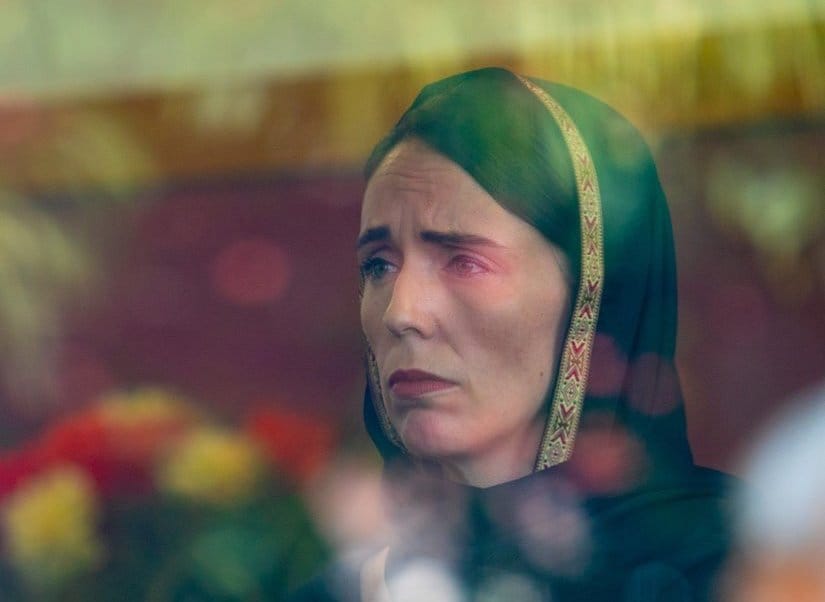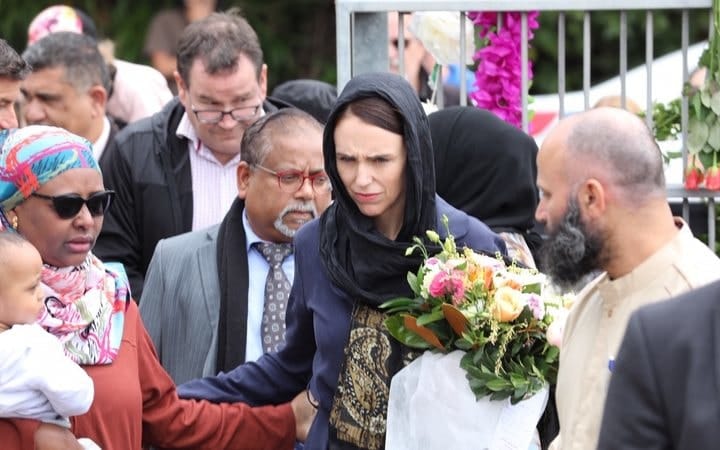

Our society has longstanding faultlines – around gender, race, religion, age and social status, to name a few. That they crack and keep cracking is not a shock, especially when we don't recognise where they come from, how they're perpetuated and that they're artificial boundaries.
New Zealand Prime Minister Jacinda Ardern attempted to reach across these divides in responding to last week's Christchurch mosque attacks by saying: “We are one. They are us.”
Community leaders are incredibly important in turning the wheel. Some leaders rise by reinforcing the identity of their group against another group. Those leaders build walls to keep others out and gain by pushing others down.
Then there are leaders who invite others in, such as Prime Minister Ardern; leaders who listen and respect. They don't expect everyone to conform to the "norms" of their group, or vice-versa. Rather, they acknowledge the value and happiness that diversity can bring. They pose themselves as custodians of their groups, other groups, and the environment. Yet these faultlines require us all to be leaders so that we can enjoy the diversity in our communities.
We're all part of many groups and not part of many more, and most of the time those groups co-exist happily, until something happens that points to perceived difference in the identity of another group; something subtle such as an awkward or unpleasant interaction with a foreign colleague, or something horrific such as a violent attack on a place of worship.
The key is to reach beyond the group image and to connect with individuals and to humanise those that stereotyping dehumanises.
Of course, a bad interaction at work doesn't naturally lead to a mass shooting, but it can create a fertile soil for discrimination and violence. Slight biases come up, as we start talking about "them" and "us".
It becomes a slippery slope where your foreign colleague quickly comes to represent everyone from their country. "Bloody [insert nationality here]!" A racist slur comes out. As you talk about it at home and with your friends, stereotypes are added.
On the TV, a politician talks about the need for a wall, or a detention centre to stop refugees from said country. You feel supported in your views. A friend openly discriminates; you might not speak up. And so these faultlines become systemic norms with acceptable associated behaviours.

Building off the norms of the existing group, a new group with a slightly more extreme viewpoint forms, and so on, until a very small group of society is willing to commit serious attacks on another group, such as the 9/11 attacks or the Christchurch massacre.
Biases, stereotypes, discrimination and racism are so engrained in our society that these shocking crimes lose their ability to shock. So what can we do to support the undermining of this status quo?
Strengthen relationships within and across communities
Increasing the resilience of your community and groups before a disrupting event is a good first step. We love being part of groups. They make us feel safe, valued, and like we belong. Establishing healthy, productive and resilient relationships within your community and with other groups helps to prevent triggering events and to deal with them constructively, especially the more subtle ones.
The key is to reach beyond the group image and to connect with individuals and to humanise those that stereotyping dehumanises. Chat with people from different groups at work, or in the street. Open up your group to others by inviting them in. Do something productive together, such as organising a street party, drive each other’s kids to school, or attend cultural festivals and open days.
Cut judgments and stereotypes short
Humans have the tendency to believe that people’s behaviours reflect their personality and background.
That difficult interaction with your foreign colleague mentioned earlier? Perhaps they were having a bad day at work, and it had nothing to do with their nationality.
Someone arrives late at work for the second time in a week? We might think they're flaky and unreliable, and give them an eye-roll rather than considering that they might have a sick child at home. If you had arrived late at work, would it be your fault, or was traffic just terrible today?
We attribute success to ourselves and tend to blame others for our failures. Checking your assumptions and judgments of others will help to see a situation for what it really is. Ask yourself, what other explanation might there be? Consider your options before responding instinctively to a snarky comment. Only when we get to know how we react in social situations can we start to change our behaviours.
Us AND them, they are us
Biases and stereotypes can become so deeply engrained that checking them is not enough. Some groups feel under threat: “They're taking all our jobs.”
We like to think that our group is better than any other – that's why we are part of it, right? But as soon as we work under the assumption that NO group is better or worse than any other, we can allow curiosity and start building relationships between groups. This doesn’t mean we have to all be close friends or change who we are, but it does allow us to see why people might be part of another group. It helps to find a "superordinate group" that all groups are part of to build bridges.
We're all, for example, part of the same company, New Zealanders, or humans. We can live next to each other. There are many different groups in society. Some more extreme than others, but that depends on which group you ask. In the end, they're all us. Can we give them all safety, peace, and a sense of belonging?
You set the norm
As Australian Lieutenant General David Morrison once said: “The standard you walk past is the standard you accept.”
Social faultlines are systemic in our society, and they'll keep cracking unless we systematically start to reject them. We're parents, neighbours, voices in our groups. Pause for a moment, and don't let your friendship groups, work groups, family, neighbourhood and country be fertile grounds for bias, judgment, and stereotyping. You set the social norms of your group as much as anyone else.
So together, let’s step up to provide a sense of belonging and safety for everyone.





